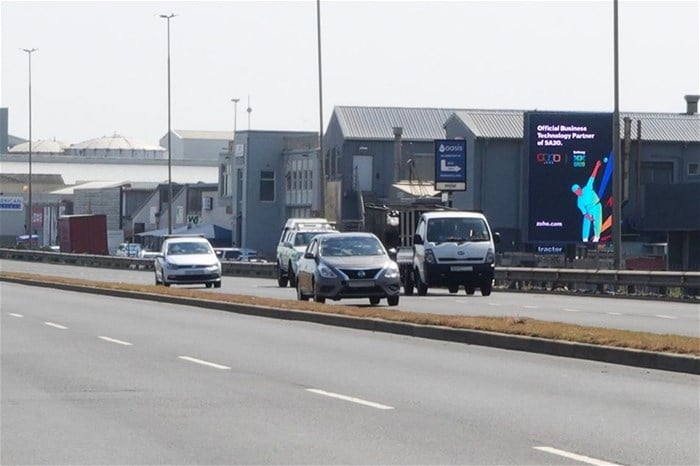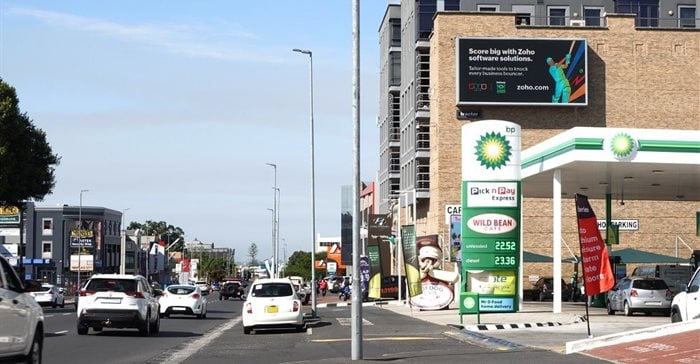Measuring attribution has been a long-term challenge for the media industry across the ecosystem, both on- and offline. Relying on simple attribution models that often overestimate the impact of direct response ads – such as those that include call-to-actions like “click here” or “buy now”– ignore the myriad influences on the consumer journey. Consequently, the true incremental value of individual media channels across campaigns is missed while above-the-line media types – like out-of-home (OOH) which drives top-of-the funnel KPIs – are often neglected.
OOH media has a lot of things going for it: reach, iconic presence, and Big Billboard Energy, to name a few. But one thing that it has always struggled with is its ability to show attribution. Historically, robust measurement was generally possible only through expensive pre- and post-testing and more recently, through programmatic-enabled measurement. However, such measurements require substantial media investment. For instance, achieving effective footfall measurement demands two million impressions per region over four weeks, while brand lift measurement requires upwards of three million impressions in the same period.
Explains Ruchelle Mouton, head of group marketing and services at Tractor Media Holdings: “In an OOH context, attribution can be measured through test control methodologies, such as comparing the differences between controlled and experimental (uncontrolled) groups, allows us to examine various marketing metrics based on specific campaign objectives within the marketing funnel.
“However, most attribution measurements have focused exclusively on footfall uplift within the OOH context, mainly measuring action taken after being exposed to an OOH advert.”
Now, for the first time, Tractor Outdoor has introduced a brand lift attribution measurement, specifically for outdoor media. The solution allows for measuring improvement on certain brand metrics that can directly be attributed to specific OOH marketing efforts above and beyond the existing brand equity. This forms part of its drive to develop various attribution measurement solutions for different needs, objectives and budgets.
“We measure incremental brand lift attribution, which holistically looks at what can be attributed to the campaign’s success.
“What makes this new measurement solution so innovative is that we can now measure attribution across various campaign formats; be it digital loop-based buys, static, programmatic digital out-of-home (pDOOH) or a combination. This solution also doesn’t require the substantial media investment requirements of programmatic platform measurement; instead, it goes beyond clicks and impressions by evaluating the success of OOH campaigns based on marketing metrics throughout the marketing funnel and specific campaign objectives. Furthermore, we can compare against industry and media format benchmarks.
“It is important for us to be able to tangibly quantify brand metrics for our clients, to measure the effectiveness of their campaigns at a more granular level, gain consumer insights to inform future campaign strategies, and determine real return on investment.”
The methodology
She explains that by using a test control methodology, Tractor can determine the campaign’s success against key performance indicators (KPIs). “We follow a simple process in collaboration with the brand or agency, where we pre-determine five KPIs for measurement based on the campaign’s objectives. Once the parameters and measurement objectives are defined, the brand lift study is activated during the second half of the campaign.”
“We activate the Brand Lift study in the second half of a campaign to maximize coverage and repeatability of the message. Depending on the level of granularity required for reporting purposes, we can establish a robust sample size requirement and then broadcast the survey across an equal split of ad-recallers and non-ad recallers.”
Mouton adds that both groups of respondents are selected within the same environment and socio-demographic criteria to ensure comparability. To do so, each site location is geo-fenced and the survey is then only distributed to individuals that have been in proximity to those specific location markers during the campaign period. “By employing geo-fencing and socio-demographic matching, we ensure that respondents are comparable while reducing any demographic bias, she says.
“Another standout point is that, because we use standardised questions, we can compare the results of similar campaigns globally and benchmark campaign performance against KPIs related to both industry (e.g. QSR or technology) and media format (e.g. digital out of home).”

Zoho case study
In partnership with its client, Zoho, a global technology company that provides cloud-based business software, Tractor recently launched its inaugural Brand Lift study. The study was conducted across 198 geo-fenced premium locations across the country in April 2024.
Zoho was the business technology partner for Betway SA20 that took place earlier this year. During that time, Zoho ran online as well as OOH ads. The study was conducted to understand the impact of Zoho’s OOH campaign.
The survey was broadcast across websites and mobile apps where a total of 300 respondents completed it, 150 of those who recall seeing the ad and 150 of those who did not recall seeing the ad.
Ad recall also performed well, with 53% of those who recalled the ad stating they had seen it more than once. “The overall campaign had an impact score of 59% which is well above average, indicating a good perception of the ad and the brand,” she said. She adds that the impact score is calculated based on the performance of all KPIs compared to global benchmarks.
When considering individual KPIs, Tractor saw a lift across all KPIs with three out of four KPIs performing well above the global benchmark. “A 2% brand attribution was achieved,” says Mouton. “Our most significant findings demonstrated a 32% uplift in ad likeability; 27% improvement in brand image; and 37% increase in specific brand image.”
“Thus, attribution evaluates the quality of the message by assessing the share of the audience that associated Zoho with the ad they were exposed to. It also acts as an attention metric, helping to measure consumers’ focus on the advertising.”
Mouton says that the performance of OOH advertising is becoming more measurable at every stage of the sales process; from determining brand awareness to assessing online and offline visits and to tracking purchases.
“This study was a significant milestone for us as it provided invaluable learnings for our future planning, and it also means that we can now offer optimisation on out-of-home messaging and positioning. This granular level of data and analytics will help to shape and refine OOH campaigns for maximum impact, helping deliver tangible results for our clients.”
“Our objective behind sponsoring the SA20 was to strengthen our presence in the South African market. By integrating OOH advertising, we wanted to enhance our visibility and connect with the community on a more personal level. It was also important to measure the true impact of the OOH campaign, which is what Tractor helped us gauge. The study helps us understand the effectiveness of the OOH ads, as well as what we can do to make our next campaign more effective,” said Andrew Bourne, Regional Head of Africa at Zoho.





